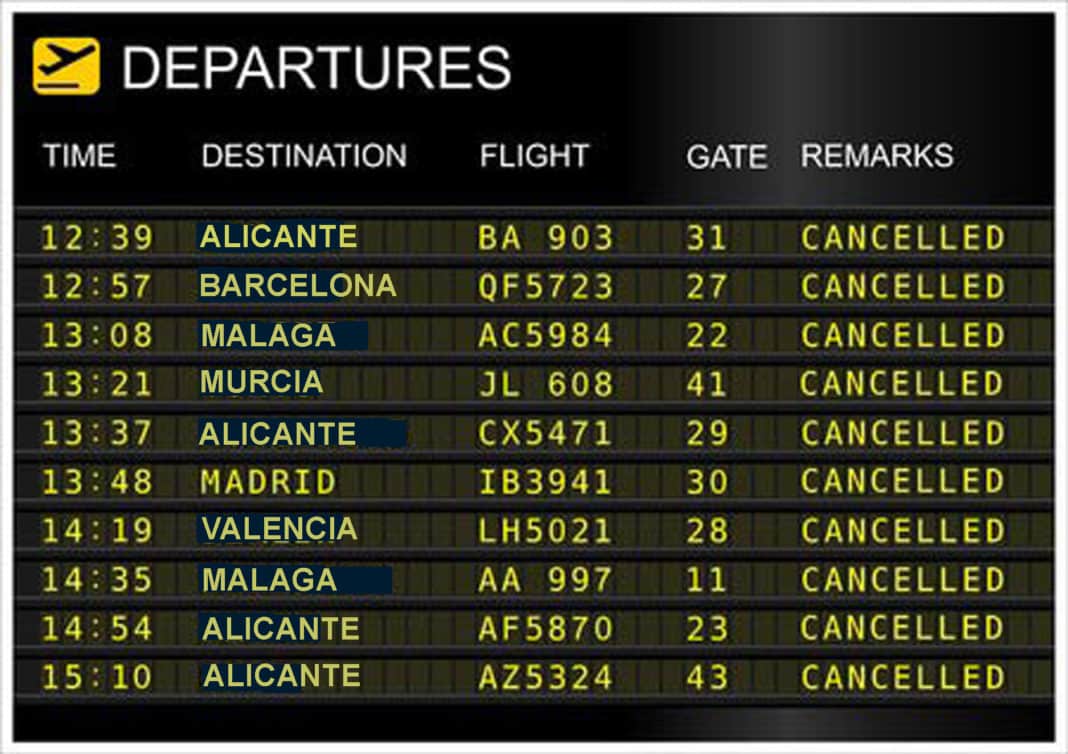- Quote: ‘National trips cannot recommence at Easter’ – Minister of Industry, Commerce and Tourism, Reyes Maroto
By Andrew Atkinson
Easter holidays have been ‘written-off’ due to the ongoing battle against the coronavirus situation worsening, said Ximo Puig, President of the Generalitat.
“The situation is still very serious and you cannot give any signal for relaxation – doing so at this time would be very negative,” said Puig.
National trips cannot recommence at Easter, said the Minister of Industry, Commerce and Tourism, Reyes Maroto: “We are still in a very serious situation – it cannot be launched no relaxation message,” said Maroto, echoing Puig’s concerns.
“We would like travel to return, because for us tourism is a fundamental sector, but thinking of Easter as a goal is not in our spirit, but in ours the mood is to play the game by game,” added Puig.
“Hopefully sooner, rather than later, sufficient conditions are met, but we are still in a very serious moment, with more than 4,000 people admitted to hospitals.
“Although the incidence is decreasing the situation continues very complicated. We cannot give any signal for relaxation – doing it at this time would be very negative,” said Puig.
“This should be not only in Spain – but in the rest of Europe – because otherwise our fundamental clients could not come either”
“Of course I would like, like the minister, that vaccination could be accelerated to the maximum and start to normalise the situation – but now we are not looking at that goal yet,” said Puig.
Fernando Simón, director of the Centre for the Co-ordination of Health Alerts and Emergencies, said that there would need to be a 14-day cumulative incidence of no more than 150 cases per 100,000 in order that travel at Easter could be acceptable.

On travel at Easter, Simón, responding to Spain’s tourism minister, Reyes Maroto, said evolution in terms of numbers of cases was now good, but that acceptable evolution cannot be confused with an acceptable situation.
“When we have incidence of 50, 100 or 150 cases per 100,000 in fourteen days”, he said.
What will not be acceptable will be 500, 400, 300 or 200 cases: “We have to be clear that a good situation for travelling is not that we go down from 800 cases to 500,” added Simòn.
As of February 1, the average 14-day incidence in Spain was 865.67 per 100,000. Regional variation is great, with Valencia registering 1,352.22 cases and the Canaries – at the other end of the scale – at 185.61.
Eight regions, adding Melilla, have rates above the national average. In addition to Valencia, these are, in descending order, Castile and León, La Rioja, Castile-La Mancha, Murcia, Extremadura, Madrid and Andalusia. The incidence in the Balearics is the sixth lowest (555.83).
Spanish epidemiologist Fernando Simón Soria, Director of the Co-ordination Centre for Health Alerts and Emergencies of the Ministry of Health was spokesman for the special committee on Ebola virus disease in Spain in 2014, and now during the COVID-19 pandemic.





